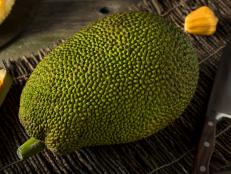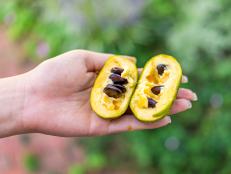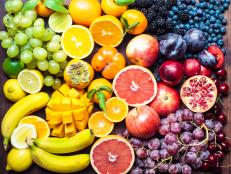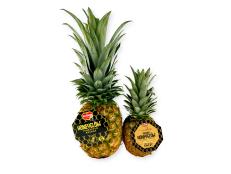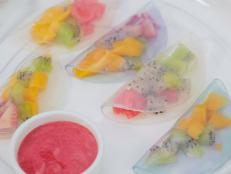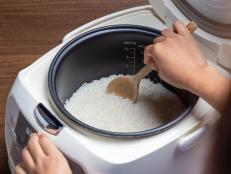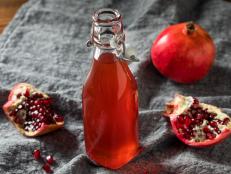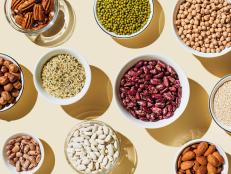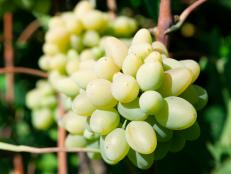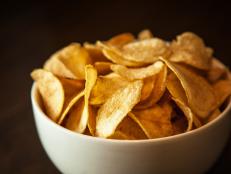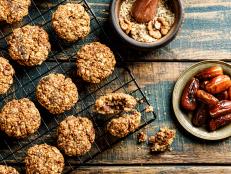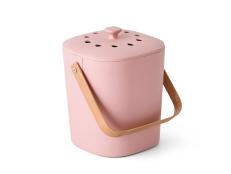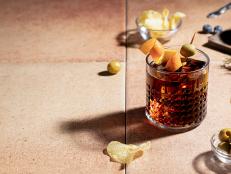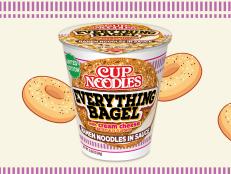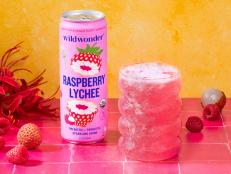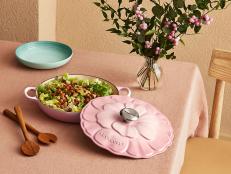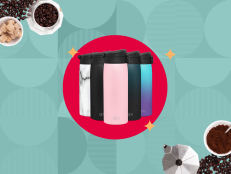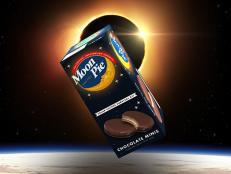Storing Fruits and Vegetables
How you store fruit and vegetables will have a major impact on their taste and texture when you serve them. Almost everything can be stored in the refrigerator except for bananas, tomatoes, potatoes, lemons, and limes. These items should be kept in a cool, dry area, but will experience strange changes if kept at too cold a temperature. Garlic and onions should be also be kept at room temperature (or cooler) in a well-ventilated area.
You should make sure to keep meat and produce separate in your fridge. The best place for meat is the bottom shelf, so no blood or other contaminants drip down onto your produce. Crisper drawers will help protect your produce and also keep the moisture in to maintain freshness for longer; many refrigerators now have high and low humidity drawers depending on what you're storing.
If you have too much of a good thing, nearly all fruits and vegetables can be stored in the freezer as well, except for some herbs and lettuce. Freeze everything in small pieces on sheet trays and place the frozen pieces in airtight containers or plastic freezer bags for easy use later.
Handle with Care
It's always best to eat any kind of produce as quickly as possible after you've purchased it as flavors and nutrients start to degrade the moment something is picked. But there are a few which require some extra consideration which are mentioned below:
Vegetables
Tomatoes can be very finicky; they should be stored unwashed and always at room temperature. Any refrigeration will give them an unpleasant mealy texture and kill the flavors and aroma. Vidalia onions have a very high water content and should be individually wrapped in paper towels or aluminum foil before being stored in the fridge. Eggplant goes bad quickly and should be used within a couple days of purchase and stored in a cool area.
Asparagus should be stored in the refrigerator with a moist paper towel around the stems or can be stood up in a glass of cold water with a damp paper towel wrapped around the tops to keep them crisp; they'll still only be at their peak for a day or two. Mushrooms can be kept in a cool, dry place and should only be washed directly before use.
Root cellars are, of course, the perfect environment for potatoes and other root vegetables, but if you don't have one, just make sure to keep the taters out of the fridge and in a cool, dry place with a lot of ventilation; the starch turns to sugar at cold temperatures, so you'll end up with "sweet" potatoes if they're refrigerated. Some people say that keeping an apple with your potatoes will keep them from growing eyes, but warmth and light will definitely cause them to sprout! Real sweet potatoes are much more delicate and should only be kept for about a week. Carrots should be peeled only right before use and can be stored in the refrigerator in a plastic bag to keep the moisture in.
Herbs
There are several ways to keep herbs fresh longer: wash them before they go in the fridge, dry them well, cut off the ends, and put them in a glass of water like a little bunch of flowers. You can cover the tops with a plastic bag or damp paper towel to lock in the moisture. You can also store washed and dried herbs in a plastic bag along with a paper towel, which will absorb extra moisture and make the environment more humid.
Lettuce
The wide variety of pre-washed lettuces can be a great timesaver for washing and storage. Some of them have been sprayed with chemicals to retard spoilage, which can give them an off flavor. Once you find a brand that you like, though, it can be very handy to keep these on stock. If you're cleaning your own heads of lettuce, you should fill up a bowl of cold water, break off the leaves, dunk them in the water, lift them out, change the water, and repeat until the water is clean. Always dry greens very well with paper or kitchen towels or a salad spinner and store them in a plastic bag with a couple paper towels as you would with fresh herbs.
Fruit
You can ripen cantaloupe at room temperature, but it will go quickly from ripe to overripe. Melon stored in the fridge can develop a rubbery texture and lose a lot of flavor quickly, so keep them at room temperature. Most berries go bad quickly, although blueberries are a bit heartier than strawberries and raspberries, which both need to be stored in the refrigerator and very gently washed just before use. Rhubarb should be wrapped in plastic and stored in the fridge, but also freezes well.
Mangos, plums, peaches, and pears can be ripened at room temperature in a brown bag until they give a bit in the palm of your hand and should then be refrigerated. Because the sugar is concentrated at the base of a pineapple, you can store them upside down for a day or two at room temperature or in the fridge to allow the sweetness to spread throughout the fruit.
Lemons and limes will last a long time at room temperature while they tend to absorb odors from the fridge, something worth avoiding. Apples can be stored in the refrigerator or a cool dark location for up to four months, but bananas should be kept at room temperature; anything below 58 degrees can give these tropical fruits freezer damage!






















